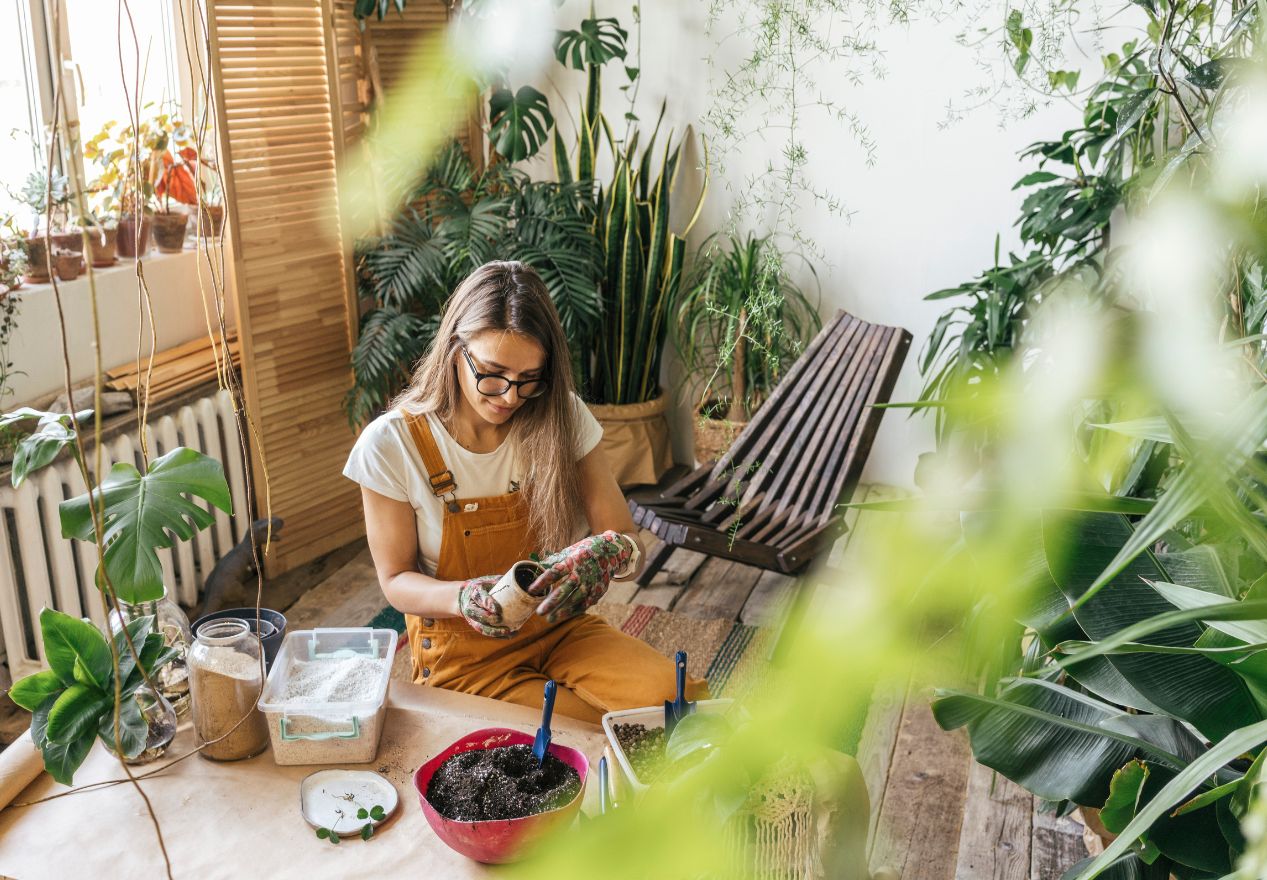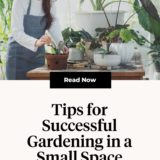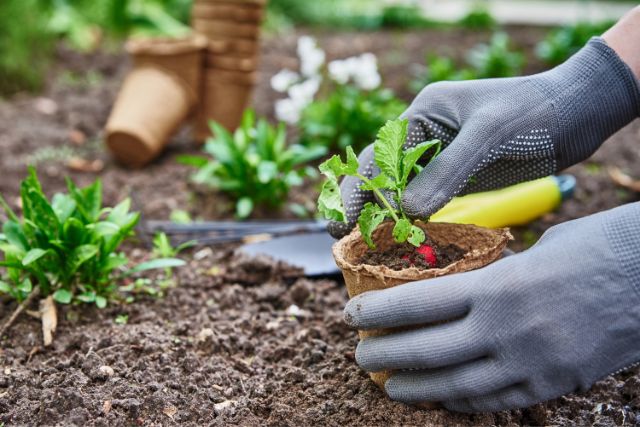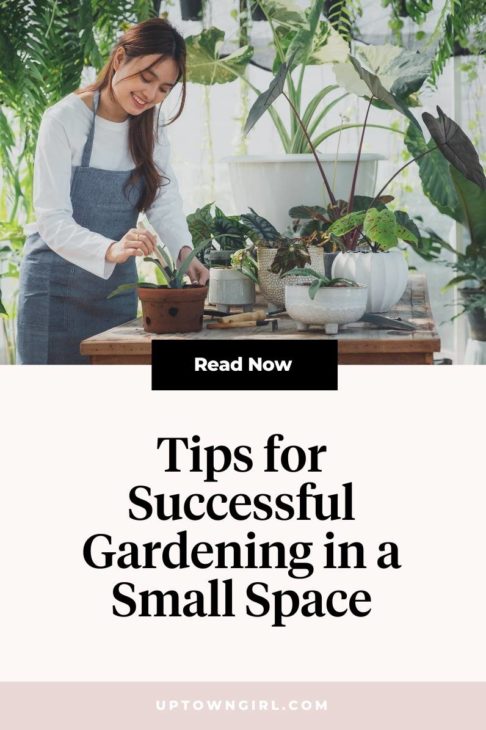Tips for Successful Gardening in a Small Space

Erika Marie is a fashion and beauty writer as well…

The vision of a beautiful flowering garden is a popular one, especially for people moving out on their own for the first time. While we would all love to have a gorgeous, sprawling garden to take morning walks through, not all of us have the space to make that happen. You shouldn’t let that discourage you from enjoying a potentially fulfilling hobby, though. Using these tips for successful gardens in small spaces, you can enjoy some more greenery no matter where you are.
Consider Your Choice of Plants
The constraints of a small garden mean that you need to consider what plants you can get the most out of. Unfortunately, you won’t be able to get much of anything if you try to plant broccoli or cauliflower in a tiny garden. However, there are plenty of high-yield plants that have a lot to offer without taking up too much space, including:
- Onions and radishes
- Spinach and leafy greens
- Garlic cloves
- Carrots
- Cucumbers
- Green beans
Embrace Verticality
Without a lot of horizontal space to work with, a useful tip for small-space gardening is to use height to your advantage. This is especially important if you live somewhere that doesn’t afford you a lot of open space, such as an apartment. Raised garden beds and trellises for vine plants are your best friends in these situations since you can take full advantage of their height without sacrificing actual growing space.
Try Interplanting and Intercropping
Interplanting or intercropping is the process of planting smaller and faster-growing plants in between larger ones that take longer to grow. In this way, you can maximize how much you get out of your garden without harming the growth of the larger plants. Slow-growing plants won’t have time to become large enough to need the extra space by the time you can harvest or move the smaller plants.
Focus on Soil Nutrition

Fertilizing your soil so that it has the proper nutrients it needs to facilitate good growth is extra important when you don’t have a lot of soil to work with in the first place. Because each plant will draw more nutrients from the small amount of soil you have, the soil will become depleted much faster than in a larger garden. Consider using organic composting materials as add-ins to your soil composition. You can also use high-quality indoor plant food for plants that you’re growing in windowsills or window boxes.
The limits of your space don’t forbid you from enjoying a garden; they just require new solutions to make the most of what you have. With these tips, anyone can start their own garden, even if you only have a window box to work with!
Save the image below to Pinterest so you can come back later!

Erika Marie is a fashion and beauty writer as well as a hardcore vintage clothing enthusiast. In her free time, she can be found thrifting for hidden gems to add to her collection.
